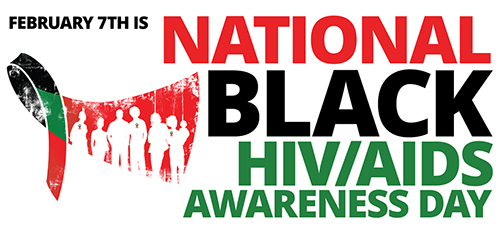
Tori Cooper remembers when words such as transgender, gender nonconforming, and questioning, were not part of the lexicon. There were no words to describe her experience.
Now Cooper, an African-American HIV health educator at Positive Impact Health Centers in Atlanta and Duluth, GA, is living openly as a trans woman and empowering “trans folks” to be change agents: advocates for greater access to education, employment, and healthcare in their communities.
In observance of National Black HIV/AIDS Awareness Day on February 7, amfAR spoke to Cooper about her personal journey of transitioning, her work as an HIV educator, and what needs to be done to reduce HIV disparities among transgender women of color.
Can you talk about your journey as a transgender woman? How have you been able to live so authentically?
I was assigned boy and conditioned and socialized as such, but it wasn't how I felt, and it certainly wasn't how I would have described myself. I remember we moved into a new neighborhood, and I was sitting on the porch, and some kids were walking by. They asked me "Are you a little boy or are you a little girl?" And even though I answered, "I am a boy," it meant they saw me in a way that no one else did. As a teenager, I played in my mom's clothes, and it was fun, but in a way, it validated something. In college, I pierced my ears, arched my eyebrows, wore women’s clothes, and got my hair and nails done regularly. I was able to do these things without feeling judged. These validations helped me to feel comfortable being who I am.
I understand you have been an HIV educator for more than 25 years. How did you become involved in HIV prevention, care, and advocacy?
When I was in middle school, my mother’s cousin died of AIDS-related complications. Then in 1992, my best friend since I was 11 years old was diagnosed with HIV and died 13 months later. Even though it still took a few more years for me to become an advocate, these things laid the groundwork. In the early 2000s, a girlfriend asked me if I would assist her with an adaptation of a CDC intervention for transgender women living with HIV. It gave me an opportunity to work with people in a way I never had before. Trans was becoming its own group, and I felt a sense of pride being part of this exclusive club. It absolutely changed my life. It made me want to refocus my energy and be more targeted and specific with my advocacy work.
In the U.S. half of all transgender people diagnosed with HIV are African American (CDC). Why is prevention among this particular population such a challenge? What can we do to reduce the disparity?
A couple of reasons come to mind immediately. First, there is often a lack of perceived risk for HIV. If I am a trans woman who is only intimate with one man—and he says he is only intimate with me or he identifies as heterosexual—in my mind, I have a very low risk of contracting an STD. Second, I think for some people, there is a certain amount of inevitability. With some trans people, especially trans women of color, there's this feeling that everybody else has HIV, at some point I’m going to get it too.
In terms of reducing the disparity, I think communities are doing trans people a disservice by not providing ample prevention resources. There should be targeted prevention campaigns all across the county for transgender individuals. There’s also a need for services, such as housing, comprehensive healthcare, including mental health, employment. If a person has stable housing and employment, she may not have to rely on sex work to pay the rent.

How do we increase access to HIV prevention tools such as PrEP (pre-exposure prophylaxis) among transgender individuals?
You have to have people who look like the target audience to really sell the idea of PrEP, and you have to make sure that people understand that PrEP is for them. A message that works great for a young Asian gay men may not work the same for young African-American trans women. We want them to have the same product and hopefully the same end result, but we have to go about it in a different way. So we need to be very purposeful in hiring trans people to promote PrEP effectively.
You have been an advocate, in some form or another, for nearly three decades, what drives your passion? And how do you define success in your work?
My passion is just something that comes from within, because I am a member of this community, so I'm working for us. These are my home girls and my sisters, who I have the most intimate conversations with. I define success by seeing us live healthily and happily. When I see my girls getting jobs, sometimes in places where they couldn’t use the bathroom of their gender identity, that's success. When I see people who are getting to undetectable viral loads because all they did was take their medicine for 90 days, that's success.